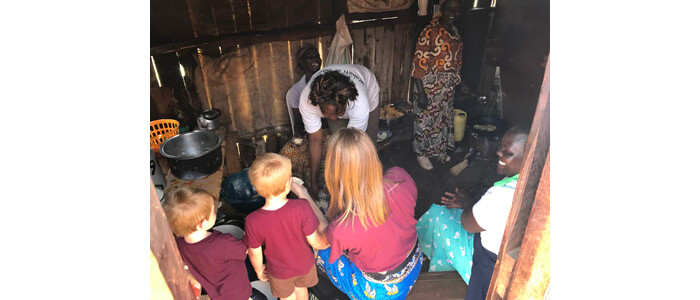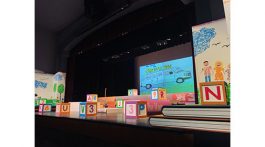I heard a story awhile back about a man by the name of Mohammad Yunus. I don’t recall the source, so I’m probably going to butcher the story and get a few of the facts wrong. Sorry. Hopefully you’ll get the gist of it.
Mohammad Yunus was a professor of economics in India. He and his colleagues spent a great deal of time sitting in their offices and boardrooms crafting grand, poverty-ending theories. One day, Yunus decided that he had spent enough time theorizing. He noticed that, despite all of the theorizing being done by he and his brilliant colleagues, people were still starving to death across the street from his university. So, he left the theoretical. He walked across the street and started spending as much time as possible with the starving people of India. He shared meals with them. He built relationships with them. He listened to their stories. He became their friend.
During the course of his time with the impoverished, he met a young woman who sold furniture for a living. Based on the cost of her materials and the price she was selling her products for, it didn’t make sense to Yunus that she and her family were barely surviving. She should have been making a decent profit—not a huge profit, but enough to survive on. As he talked with the woman, he discovered her problem. She didn’t have the money to purchase materials and supplies; so, she had to borrow money. Banks wouldn’t lend her money, so she had to secure financing from unscrupulous street lenders. These lenders charged as much as 10% per day in interest. This exorbitant interest left her only a couple cents per day in profit.
As Yunus dug a little deeper, he discovered that this was not an isolated problem. A surprising number of India’s poor—specifically women—found themselves in similar situations. He imagined that, if these women had the ability to borrow money at a reasonable rate of interest, it could completely change their world. So, he asked around to find out how much capital (in the form of a loan at a fair rate) would be needed for women to stop doing business with the high-interest-charging street lenders. For a group of 40 or so families, he discovered that amount would be somewhere around $30. Yes, at most, loans totalling $30 could change the world of 40 families. He immediately loaned it to them out of his own pocket. Over the next few years, he founded Grameen Bank, which focused on micro-loans to women and families like those he had encountered. The billion-dollar micro-financing industry was born; and, in 2006, Mohammad Yunus was awarded the Nobel Peace Prize for his efforts.
I love this story. It resonates with me for a lot of reasons. I think it’s a good example of what Jesus wants his followers to do. I don’t think Jesus is really a fan of a culture of Christians who sit in comfortable chairs in front screens of various sizes, furiously typing away about how to make the world a better place…or who we should vote for to make the world a better place…or all the faults of the people we think are making the world a terrible place. Of course, it’s not that any of that is inherently wrong. I’m as guilty of this as anyone. I just think that Jesus wants us to be biased toward action over theory. I think he wants us to leave our comfortable chairs and board rooms and social media platforms. I think he wants us to share meals and face-to-face conversations rather than 140 character comments, likes, sad faces, angry faces, and replies. I’m convinced that lives don’t change for the better on Facebook. Lives change for the better at dinner tables and in living rooms. Mohammad Yunus didn’t win a Nobel Prize for a grand theory concocted in a plush boardroom. He won a Nobel Prize because he was willing to leave the boardroom, walk across the street, build relationships, and learn from it.
What does all of this have to do with Kenya? It’s one of the reasons that we take our family there—so that we can share meals and build relationships with the people we want to help. Side note: impoverished Kenyans have given us far more than we could ever give them. My wife and I have got to be some of the luckiest people on the planet. We have an abundance of awesome memories and blessings in our life. Not one of the them came from my sometimes witty Facebook comments, blog posts, or Twitter replies. Every one of them came from action—from doing stuff. That’s what Kenya taught us about action: you often end up getting more than you could ever give…and you end up with some pretty fantastic memories in the process.




No Comment